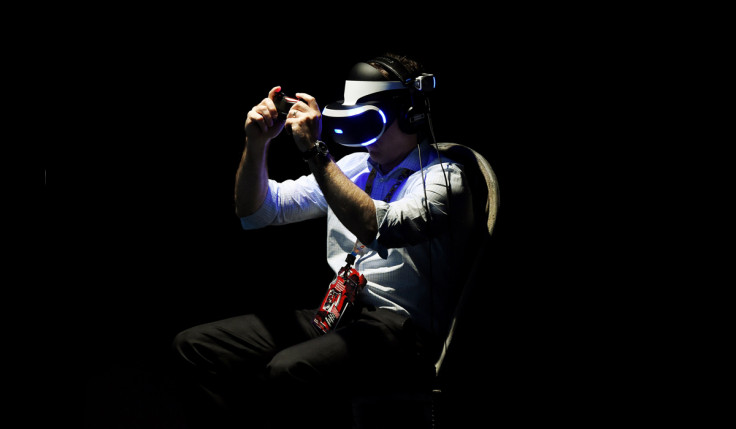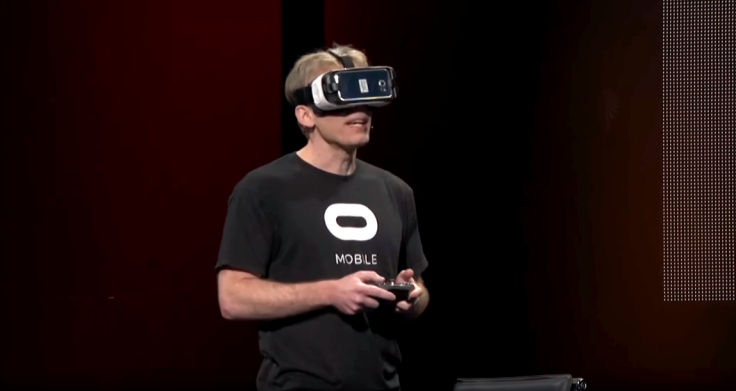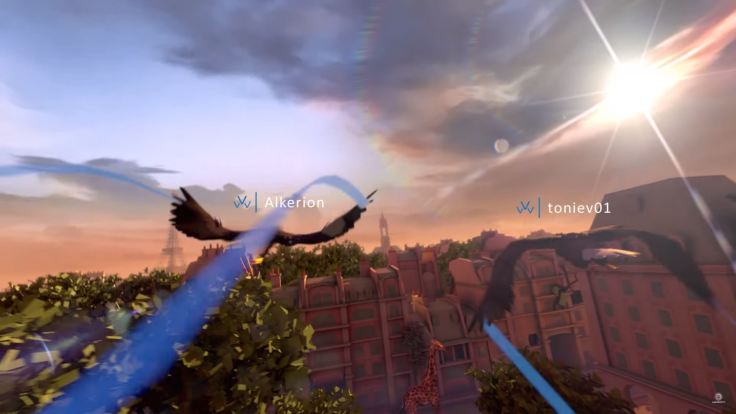How virtual reality won E3 2016 by stealing the show from Sony and Microsoft

If, like many gamers, you've been catching up with E3 via the written word, you've probably heard about how Sony wowed us with a strong showing, or how Bethesda gifted us a screaming fan and a man with too many shirts.
The real winner at E3, however, wasn't any company in particular, nor was it grappling hooks – although there wqere so many of those you could be fooled into thinking that way – instead it was the futuristic promise of virtual reality that really came out ahead.
It's been a long time coming: 2014 and 2015 were both billed as the year of virtual reality (and the same happened this year), but now that the HTC Vive and Oculus Rift are out in the wild, and with PlayStation VR on the horizon, it's clear that developers can't fob consumers off with impressive-looking tech demos any more.
Players can download armfuls of those at home and play them to their heart's content now. This E3 was the first where developers had to show us complete games.
If virtual reality is ever to break out of its role as a hobbyist play-thing, we need three things: cheaper headsets, exciting games and big franchises willing to make the move to VR, and let everyone know it is OK.
Over three days of conferences, E3 delivered all of that, thankfully sparing me from writing a "VR still waiting" post asking when people would stop talking about VR and start acting. Razer announced the HDK2, a $399 (£282, €354) headset with hardware that, on paper, rivals the big boys. The lenses have a special cover to reduce the screendoor effect of VR and diopter adjustments that should mean those with glasses can still use the headset without contact lenses.
You miss out on a couple of benefits from the big leagues, however. The HDK2 doesn't have 3D positional tracking and so can't use touch controllers, which for me is the most exciting part about VR – but if you want to strap a screen to your face and enjoy a game like you're actually there on some kind of Star Trek holodeck, it's a world ahead of the quality seen in the Samsung Gear VR and other mobile headsets allowing you to have a taste of the good stuff without dropping £800 on something you might not even have space for in your home.
The PlayStation VR also got more of a look in from all parties. Compatible with existing PS4 consoles and Move controllers, it's a £350 headset that'll let you enter your own personal version of the Matrix. In fact, it seems like The Matrix is the only license you won't be able to jump into in VR (sort it out, Warner Brothers, it's an open goal). Many of popular series and recent hits are getting the VR treatment: Batman, Final Fantasy, Volume, Until Dawn and Star Wars are just four examples. If you want to be Batman or a freakin' X-Wing pilot, VR has you covered now.


The Oculus Rift and HTC Vive aren't struggling either when it comes to big games: Ubisoft announced Star Trek Bridge Crew – which is essentially a VR version of Artemis Bridge Simulator with the Star Trek license slapped on it. It looks fantastic, allowing players to form their own Trek crews and fend off alien threats from the USS Not-Enterprise bridge. It'll probably descend into yelling at other players and claiming you "Cannae do anything, but you're givin' it all she's got," but that sounds plenty fun to me. Ubisoft also announced Eagle Flight, a fun-looking multiplayer VR game (see above), but sadly demoed without the help of Trek actor LeVar Burton.
You want more? How about Killing Floor in VR? A shoot-em-up making use of VR controllers that takes the main series' frenetic shootouts and makes it a much more claustrophobic and tense experience. Take a look at this trailer and the easy way the player tosses a handgun from one hand to the other to take out a monster as it gets within arms reach. This is the sort of thing we've all dreamed about doing with games, and it's finally here.
The real headline-grabber though was Bethesda's giant post-apocalyptic RPG Fallout 4, which is coming to the HTC Vive next year. It'll work with all of the fun Vive features, too, so you can use the hand tracking to look at your wrist and fiddling with the fully-functional Pipboy. I can't imagine why you would want to exist in the oppressively bleak world Fallout 4 presents, but in 2017 it's a choice you'll be able to make for yourself. The game is also coming to Microsoft's VR-supporting, super-powered console Project Scorpio as well.
The latest Resident Evil is going to be completely playable from start to finish in virtual reality with the PlayStation VR, meaning you can be scared witless by one of your favourite horror franchises in a whole new way. Since we're talking zombies, E3 2016 has highlighted one of virtual realities real strengths: it can bring dead genres back to life. It started with space games and now appears to be making a march on lightgun blasters and hardcore survival horror games. It's the same as playing the games you used to know and love, but in virtual reality.
If it sounds like I'm just adding "but in virtual reality" to a bunch of game concepts, that's kind of the point: virtual reality has now pervaded every E3 conference and many genres. We're seeing virtual reality adopted now not as a weird curio, but as a tool to enhance gaming experiences. VR really needed three things to be crowned the victor of E3, and it brought us all of them. 2016 still might not prove to be "the year of VR" but we've been given a glimpse of the future, and it's wearing a great big futuristic headset.
For the latest E3 2016 news head to IBTimes UK's hub page
© Copyright IBTimes 2024. All rights reserved.






